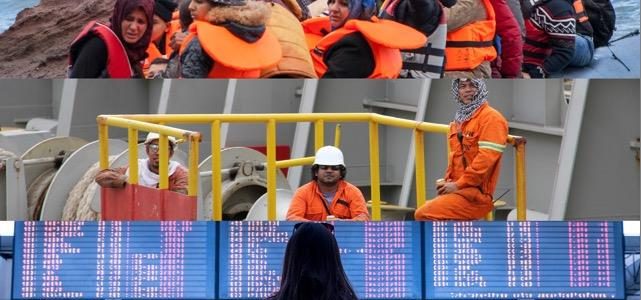Onwards to 2030. Migration: futures study
Upon request of the Minister for Migration the Advisory Committee on Migration Affairs looked into the possibilities of a future-proof migration system.
Full English version published December 2018 (Dutch version published in March 2018)
Migration has been part of all periods of history, and will be part of our future. But the causes, origins, intensity and methods of migration are constantly changing. The way forward for any future-proof migration system can only be charted if politicians, business leaders and citizens bear this reality in mind.
The futures study ‘Onwards to 2030’ offers ways to deal with the uncertain future of migration. Amongst others, climate change, conflicts in the countries surrounding Europe, population growth in Africa, the future of the European Union, innovation and social cohesion in Dutch society are identified as relevant factors. On the basis of these factors the ACVZ has outlined four different ‘futures’ in which migration policy can be developed.
However, there is no consensus in Dutch society on the purpose of migration policy. Some feel that migration policy should mainly serve Dutch economic interests. Others think that the main aim of migration policy is to offer protection to refugees and migrants and strengthen their legal status. And yet another group sees migration as a burden on society and thinks immigration to the Netherlands should be limited as much as possible. That is why the ACVZ has described three policy scenarios, each based on one of these positions.
The study clearly shows that the future viability of all policy scenarios is highly dependent on what the (uncertain) future will look like. Regardless of which normative context was used as a starting point, for meaningful policy continuous fine-tuning of the policy to the environment will be necessary. Focus areas for the 2018–2030 period are amongst others:
• Addressing the root causes of forced migration
• Contributing to high-quality and forward-looking reception in the regions
• Border control
• Proper cooperation at international level
• The influence of migration policy on social cohesion in Dutch society
• Participation of migrants in society
• A migration-proof social security system
• Open and unambiguous government communication



Comments are closed.